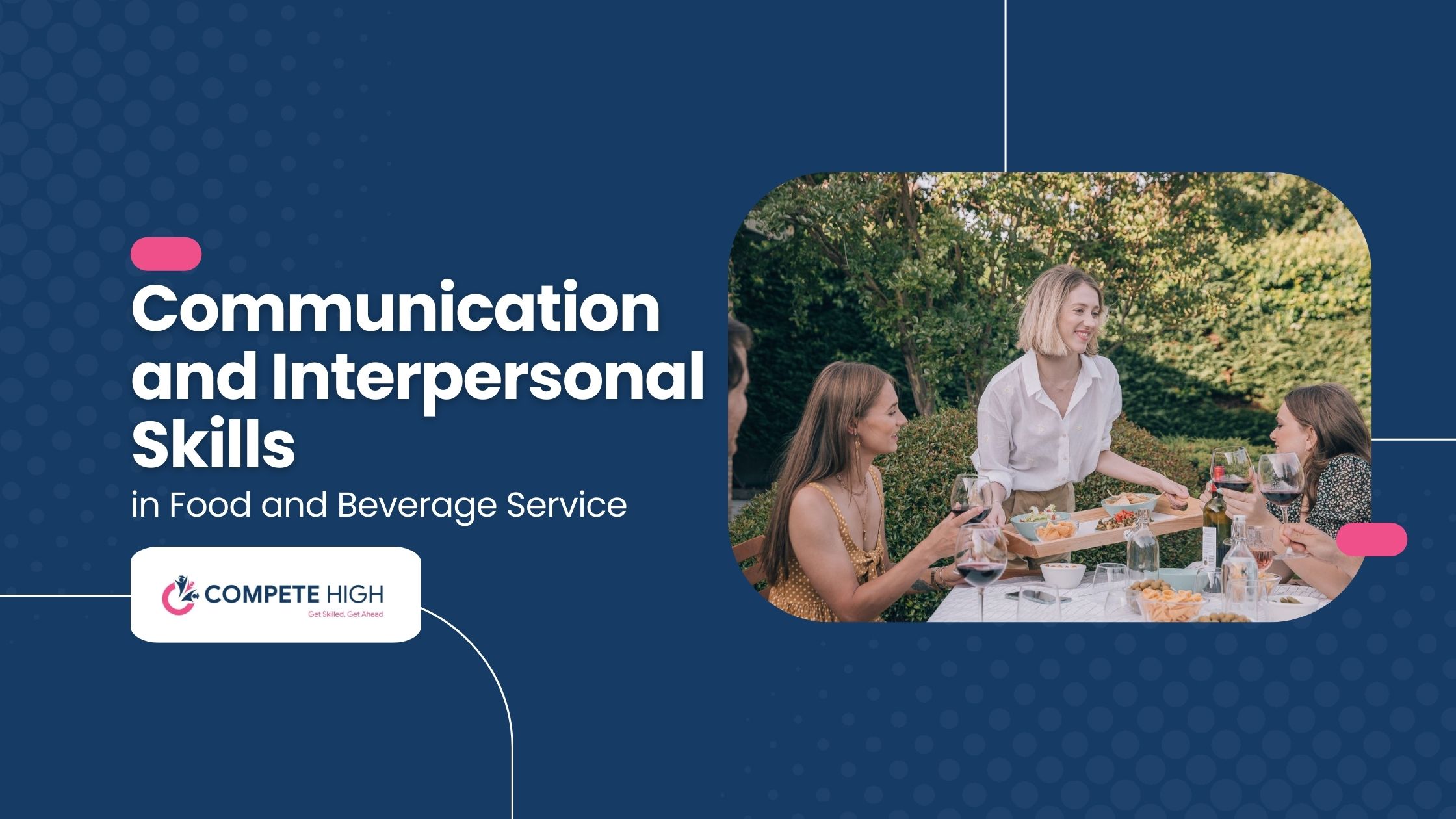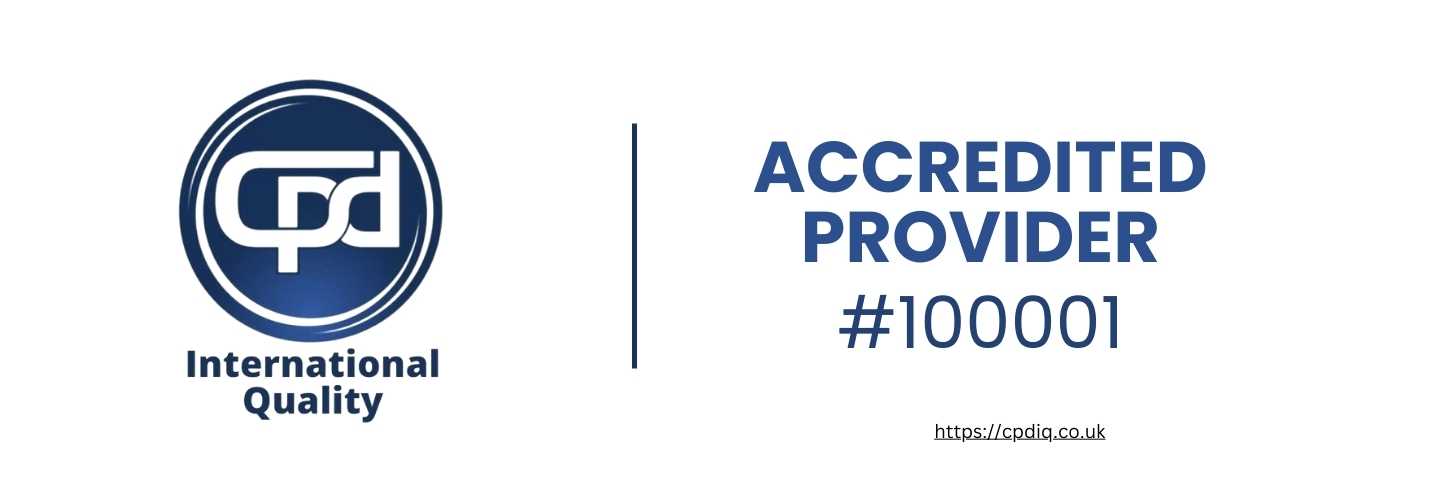
Communication and interpersonal skills are the cornerstones of the food and beverage industry. Food and beverage service is all about relationships. The way you communicate and interact with others as a server, manager, or chef has a direct impact on customer satisfaction and the success of your business.
In this blog, we explore the vital communication and interpersonal skills needed in food and beverage service, where and how these skills can be applied, and ways to further develop them throughout your career. How do these abilities enhance your professional life and level of customer service? Let’s get started!
Understanding Communication in Food and Beverage Service
Definition and Importance of Communication
Communication in fast food also means providing information to customers and ongoing communication between staff. This aspect of communication in the food and fast beverage industry is particularly important to effectively present customers with information on their orders before they place them. I believe that providing customers with the right information will ensure orders will not be mistaken and avoid any dissatisfaction with overall service.
Types of Communication
Verbal Communication
Effective oral communication means clearly expressing oneself when speaking and having good listening skills. It is important not only for taking orders but also for explaining menu items, answering customer questions, and providing requested information. In a nutshell, properly developed verbal skills lead to a pleasant atmosphere at a restaurant.
Non-Verbal Communication
They are called non-verbal communications, such as gestures and body postures. Smiling, making eye-to-eye contact, and standing with an open posture make customers feel welcome and appreciated. It represents the voluntary visual indicators that support oral speech, showing confidence and friendliness at the same time.
Written Communication
Written notes are important for taking orders, noting requests such as no sugar, and communicating between the kitchen and the service staff. Written notes are more exact, less likely to be misheard or misunderstood, and less likely to result in an order of chips and peas instead of a meal for a vegetarian.
The Role of Effective Communication in Enhancing the Customer Experience
Good diners have placed a high priority on communication. When the staff communicates well, the service is quicker, fewer errors are made, and the restaurant is fun to eat in. The customers feel valued and important, which improves repeat business and the number of good reviews. Good communication skills in restaurants leads to a good experience for all of the guests dining at our fine-dining restaurant.
Key Communication Skills in Food and Beverage Service
Active Listening: Techniques and Benefits
Active listening is a method of aiding the listener to grasp the speaker's arguments and provide them with exact replies. It also involves the usage of certain techniques, such as nodding, as well as eye contact, aiming to establish a connection between the listener and the speaker while paying attention to every word exactly to boost the chances of error-free instances. To summarize, active listening is the method of aiding the listener to grasp the speaker's arguments and provide them with exact replies.
Additionally, it also involves the usage of certain techniques, such as nodding, as well as eye contact, aiming to establish a connection between the listener and the speaker while paying attention to every word exactly to boost the chances of error-free instances. Its advantages are inclusive of reducing misunderstandings, improving the situation of the customer, and establishing a connection with the guests.

Clear and Concise Speaking: The Importance of Clarity and Brevity
Being clear and concise means nobody has to ask you to repeat your request; you’ll be understood on the first try. Keep words simple and get to the point. Nothing causes the service experience to slow down more dramatically than murky language and rambling. This is especially true when directing a menu item or special request back into the kitchen. Make the person you’re talking to understand exactly what you need without mincing words.
Body Language: Positive Gestures, Posture, and Eye Contact
Your body language supports your verbal communication skills. A friendly smile, eye contact, and an open posture assure the customer that you are approachable, and welcome body language options like a head nod or an open palm allow you to affirm whatever the customer is asking, making the customer feel valued.
Written Communication: Taking Orders, Note-Taking, and Reporting
Food and beverage service staff must be able to communicate properly in writing. By taking an accurate account of the requests from customers, your orders will be made properly, and you will not make mistakes on items. To remember the important details between meetings or briefings, it is important to take notes as well. Reporting is used for writing down incidents or special requests that you receive from customers. It will help you to know if there were any issues or something special with your orders, so that the service will improve day by day and situations will be solved quickly by responding to them. Writing will keep everything working perfectly.
Developing Interpersonal Skills for Success
Definition and Significance of Interpersonal Skills
Interpersonal skills are the ability to communicate or interact with others by establishing good relations and friendships. Communication, empathy, and teamwork. These skills are important in the food and beverage industry for better customer transactions and enjoying happy moments with each other to make the industry more enjoyable. Interestingly, improving interpersonal skills has a positive impact in all areas.
Building Rapport with Customers: Techniques and Examples
Customers appreciate personalized rapport, i.e., personal connection and the feeling of being an appreciated guest. Some examples of providing rapport are: A host greets customers in person, addresses them by name, and shows positive interest in them. An excellent host remembers a regular customer’s preferred drink and prepares it before welcoming him into the main hall: 'George, I'm so glad you could join us again. Your usual, George?’
Empathy and Emotional Intelligence: Understanding and Responding to Customer Needs
For example, empathy and emotional intelligence call for being aware of what others are feeling and responding to their situation. A server employing service recovery must be attuned to the customer’s frustrations and address them with genuine concern. If a diner gawks up at his nose, the server should ask, ‘Sir, is everything okay?’ Fostering an emotional connection can turn a nasty incident into a pleasant experience.
Conflict Resolution: Strategies for Handling Complaints and Difficult Situations
It is all about how the customer expects the conflict to be resolved in a situation when he or she comes up with a complaint. Strategies to resolve conflict calmly and effectively are numbered as follows: 1. Staying calm: responding to the customer’s concern in a calm manner. 2. Listening to customers: providing a patient ear to the customer’s concerns and worries. 3. Problem solving: offering a solution to the customer’s problem.
For instance, if a person comes up with a complaint that his order has been delayed, the server can acknowledge the complaint and offer a discount or dairy product as a complimentary item on the order. Success in resolving conflict keeps the customer happy and ensures that the restaurant’s reputation remains intact.
Practical Applications of Communication and Interpersonal Skills
Greeting and Seating Guests: Making a Positive First Impression
Make a good first impression. Greet guests with a big smile and a polite greeting. Walk them to their table and pour their water with confidence and attention. By making a good first impression, you’ll set the stage for the rest of their ordering, dining, and checkout experiences and make the customer feel valued.
Taking Orders Effectively: Ensuring Accuracy and Efficiency
When you take orders, listen carefully to the customer, try to repeat the order, and ask the customer about details so that you make sure you give them the food they want. This will show the customer you are paying attention to them, as well as reduce practice errors. This will give the customer better and faster service and make them happier with their service.
Managing Customer Expectations: Communicating Specials, Delays, and Changes
Open communication and interpersonal skills are the key to expectation management. Notify customers as soon as possible about specials, service delays related to kitchen gotchas, or menu alterations. Make sure things like dishes (‘This special wasn’t available; would you like something else?’) are communicated. This will alleviate frustrations and enable food service managers to provide a productive eating experience.
Handling Feedback and Complaints: Turning Negative Experiences into Positive Outcomes
When dealing with complaints, listen respectfully and apologize sincerely. Take action quickly (offer a replacement dish or 10 percent off the next meal, for example) and follow up with the customer to make sure his or her issue has been resolved. Mitigating the negative consequences and showing genuine concern while listening to and resolving feedback can turn a negative experience into a positive one and signal commitment to customer satisfaction.
Training and Improving Communication and Interpersonal Skills
The Importance of Ongoing Training and Development
The amount of training and development we continue to invest in is very important for people working in food and beverage. Staff must follow the latest trends in communication and interpersonal skills with customers, so regular training could be a solution considering this. Improper intercommunication and interpersonal skills could have a very negative impact on service standards, and as a result, deregulation of service could happen very often.
On the other hand, constant upgrading could be quite useful for developing customer service skills in the food and beverage industry and job results. Best work results are achieved when workers feel confident in their chosen path, and a lack of proper assistance could mostly drop service standards. Training takes place every week.
Role-Playing and Simulations: Practicing Real-Life Scenarios
Role-playing and simulations make for effective training aids. Acting out situations familiar to the working life aid staff. Appraising difficult customers is a well-used example. Acting this out in a controlled environment builds confidence and teaches tactics for handling common situations.
Feedback and Self-Assessment: Tools for Continuous Improvement
To help workers grow, provide consistent feedback and opportunities for self-assessment. Encourage employees to give one another and their supervisors positive feedback about their jobs and careers. Lend a listening ear and guide employees in self-reflecting on areas they need to work on. Encourage regular self-assessment opportunities to identify and celebrate skills mastered. These tools support the development of a culture that prioritizes growth and skillful, continuous improvement within the team.
Leveraging Technology: E-Learning Platforms and Resources
There are so many resources that technology provides that can help with a trained workforce. Firstly, it provides effective e-learning platforms that are flexible, which the staff can access at any time according to their convenience and self-network. On a second try, each module can be downloaded so that members of staff can use it as face-to-face training or as a review.
Moreover, members of staff nowadays can do away with the old method of someone coming to their organization and giving a lesson in their place of work and can enjoy the experience of online courses and interactive tutorials, videos, books, etc. that are provided through the website. This can ensure the training modules on sales and customer service are completely up-to-date.
The Impact of Communication and Interpersonal Skills on Business Success
Enhancing Customer Satisfaction Skills and Loyalty
The better able one is to communicate with customers and treat them well, the more customers come back again. Sethi, the business manager at a chemicals company in Indore, explained to me that being a good boss involves being a good listener. This approach, he said, made the employees feel valued, which in turn motivated them to work harder.
Improving Team Dynamics and Workplace Morale
Good communication skills in restaurants among staff leads to better teamwork and stimulates their morale since when employees talk things out to each other clearly and openly, there is less likelihood of miscommunication or conflicts that can negatively affect the output of the company. Employees' engagement with each other in a more positive manner makes them feel that they are being supported by their peers, which in turn increases their satisfaction and makes them more productive for the company.
Boosting Sales and Revenue Through Better Service
Good communication and interpersonal skills directly relate to sales and revenue. If staff communicate well, they can sell more and sell a wider range of goods or services through better upselling or cross-selling. When we provide good service, customers will come back more and spend more, therefore boosting revenue.
Building a Strong Brand Reputation
A good brand reputation comes from good service quality and a positive guest experience. Success in this area relies heavily on the skills and aptitudes that underpin good communication and interpersonal skills in relationships. People know the flavor of the brand by the taste left in their mouths.

Conclusion
In conclusion, we can say that although working in the food and beverage industry can be challenging, having good listening skills, good manners, good communication and interpersonal skills plays a vital role in ensuring that customers receive excellent service. In addition, by learning and honing these skills, teamwork improves, sales increase as staff are more upbeat about the brand, and (hopefully) loyal customers come back to a great brand for more sales and success.
In the end, it is worthwhile investing in yourself and your team to improve communication and interpersonal skills. Don’t forget to master those questioning skills and give your customers excellent service. Last but not least, make sure that you have great manners! To further improve your customer service skills, check out our courses and resources at the Elite Academy and Live Well channels.










